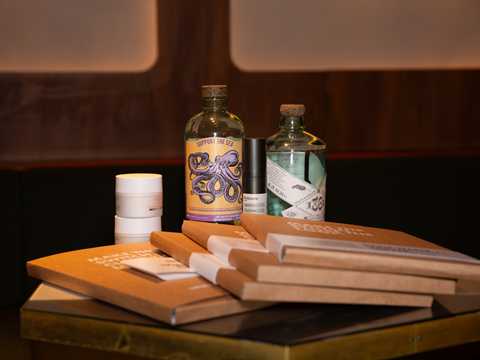
A survey conducted by UPM and the Pentawards suggests that cost is considered a roadblock when designing packaging for sustainability; and that packaging designers would benefit from material guides to select the most environmentally beneficial materials.
47% of the packaging designers interviewed reported that they felt ‘extremely comfortable’ working with briefs that included sustainability requirements; yet 43% said they would prefer more direction or information to handle such a prompt. 35% believed that material guides would be the most beneficial resource to help them design a pack with sustainability in mind.
Although many packaging designers themselves are said to aspire to packaging sustainability, price apparently emerged as the biggest challenge to sustainability-minded packaging design – and while 57% of designers felt they always or often have a say in the materials chosen for a product, 17% say they almost never do, and 20% report that it is a rare occurrence.
“Everyone wants to be green, until they see that being green is usually more expensive,” said one respondent.
Another stated: “I think the production end, or the manufacturers, are not yet completely ready for this kind of change.”
According to UPM, this indicates that ‘some clients may not have yet realized the value of exploring alternative and more sustainable packaging solutions’. In general, the company concludes that further education on incorporating sustainability into packaging design is necessary; and that, although designers appear to value sustainability-minded packaging design, clients frequently opt for cheaper materials instead.
UPM sustainability director and Pentawards jury member Robert Taylor recently spoke at a Pentawards Meets closed event to discuss the findings and help address the challenges faced by designers.
“While cost has been highlighted as a barrier to embracing sustainable packaging design, it’s important to take a moment to consider what is the true cost of not doing so,” he said. “We need a holistic approach that considers the value creation potential in a market that is growing twice as fast for sustainable products.
“This is especially key as the impact of new regulation and green finance kicks in, with carbon taxes, plastics taxes and Extended Producer Responsibility (EPR) fees just a few examples. Reducing packaging is one of the most effective ways to reduce impact and cost. Using less raw material, water and energy and generating less waste or having a more effective supply chains brings savings and reduces the environmental footprint.
“As an industry, we need to understand the true cost of sustainable packaging design and embrace innovations that will help us meet the ambitious environmental targets set. We are faced with more climate, biodiversity and water crises across the globe every day but with only 15% of the Sustainable Development Goals (SDGs) on track to meet their target levels by 2030, not taking action towards improving sustainable packaging is simply not an option. We need to move forward faster.”
Adam Ryan, head of Pentawards, added: “We’ve had some really interesting insights from the survey with UPM, our community was open in sharing challenges, improvements and their ways of working in sustainable design. It’s great to see that brands and agencies are now so willing to share insights and learnings which benefits the industry as a whole. Sustainability in design is continuously developing and it’s so important that we at Pentawards are part of this.”
In another survey conducted by Aura, 22% of packaging professionals felt that their supply chains are becoming more sustainable – but 27% stated that they did not know whether their company is on track to meet its sustainability targets. 79% felt that their knowledge of current and future packaging regulations was limited or needed help understanding it.
Consumers also made their voices heard in an Ipsos survey commissioned by WWF and the Plastic Free Foundation. An average of 85% of respondents called for a Global Plastics Treaty to ban ‘unnecessary, avoidable, and harmful’ single-use plastics.
In other news, the Pentawards recently introduced new subcategories to its annual packaging design competition; now at least one dark and one clear spirit under the Beverages category, and a CBD product under the Body, Health & Beauty category, will receive an award.
If you liked this story, you might also enjoy:
How are the top brands progressing on packaging sustainability?
Sustainable Innovation Report 2024: Current trends and future priorities
Reuse vs. single use – which is better for the environment?
The ultimate guide to global plastic sustainability regulation














No comments yet